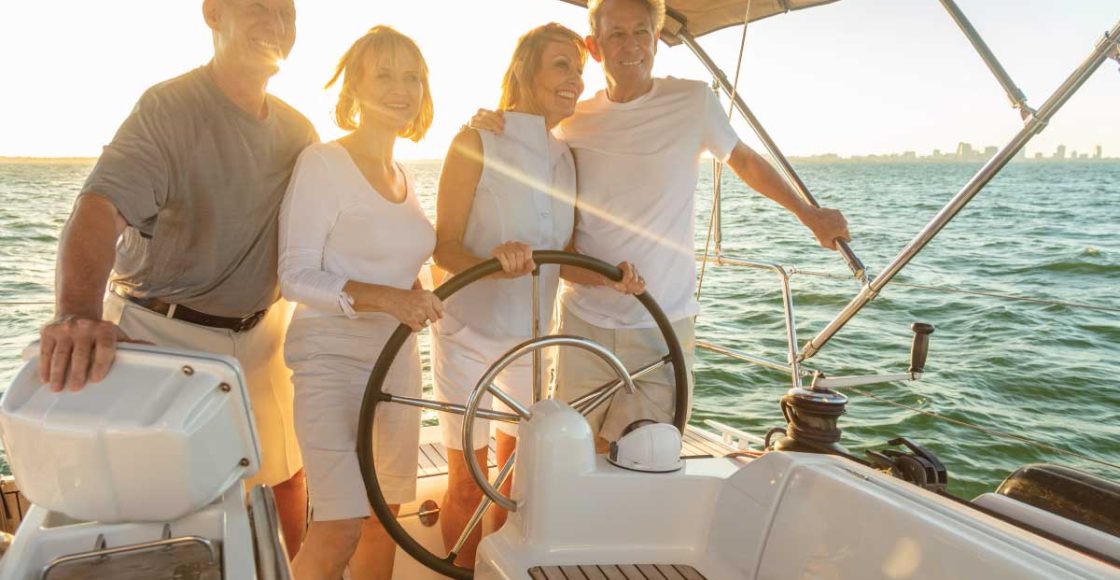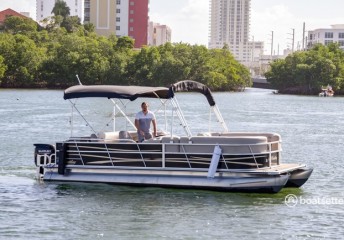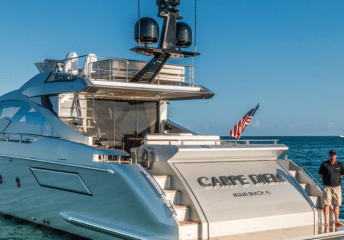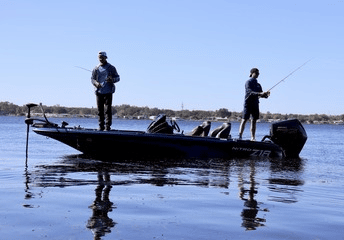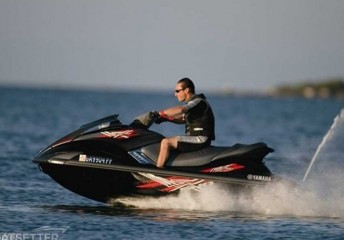Everything to Know About Fractional Boat Ownership
Last Updated on October 27, 2022 by Boatsetter Team
In recent years, the boating industry has seen incredible growth and innovation, with amazing advancements in everything from navigation tools to outboard engine design. So many new products have made the boating lifestyle safer, more enjoyable, and easier on the environment, with even more released yearly.
It also made boat ownership more inclusive. Now more people can consider buying a boat with interesting new options such as fractional boat ownership. Haven’t heard about it yet? We’ll tell you all about it.
Let your boat pay for itself. List, rent, earn — Only at Boatsetter.
So, what is fractional boat ownership?
Put simply: it’s sharing the responsibilities related to owning a boat (that includes cost!) Like splitting the cost of a batting cage rental with a good friend, in boating, it’s common for friends or family members to partner in the purchase, slip, storage costs, and maintenance of a boat to reduce expenses.
Keep in mind that these partnerships are typically informal, providing little or no legal protection. If you’re considering this, make sure it’s with someone you know well and trust.
You may enter a fractional ownership agreement that is formal and legally binding, with each partner owning a defined percentage of the boat or yacht. This ownership percentage is treated as an asset, like shares of a company’s stock.
Let’s go over the pros and cons of fractional boat ownership.

PROs & CONs: Fractional boat ownership
PROs for fractional boat owners, fractional ownership can allow you to get a much larger boat than what you were considering in the first place. For example, an owner can enjoy the yachting lifestyle for much less than the cost of purchasing a vessel outright.
Boat ownership costs and responsibilities are also limited, making it possible for new owners to stick to a predetermined budget. By dividing the operational and maintenance costs based on the fractional ownership percentages, each owner is responsible for a more predictable amount.
Other ownership expenses, such as repair costs, off-season storage, upgrades, improvements, or even regular maintenance and cleaning expenses, are also reduced for each owner, making the total cost of ownership more affordable for each.
Like any other partnership in business, CONs for fractional boat owners may include your partner may not see eye to eye on every boat-related decision like moving the vessel somewhere you are unfamiliar with or having differing tastes in colors, furnishings, and decor.
Another potential downside to fractional boat ownership may be not being able to hop on the boat and go out for a cruise whenever you want. You’ll be sharing everything, which also includes usage.
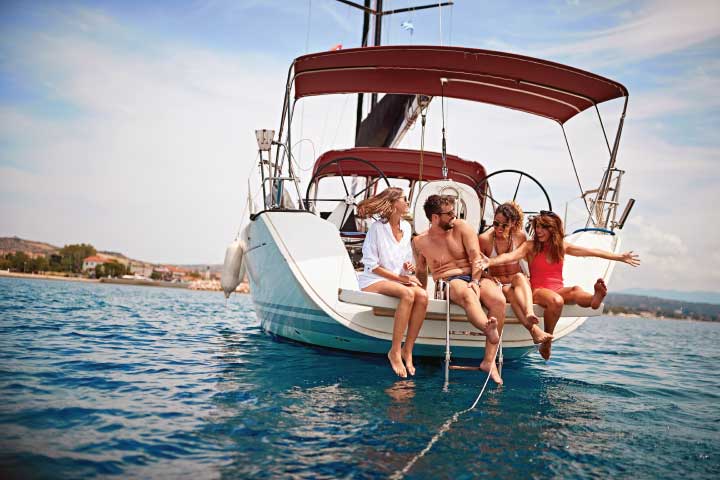
Okay! How does fractional boat ownership work?
As the name suggests, each owner is responsible for a percentage of the operational and maintenance expenses, repair costs, and vessel maintenance equal to their ownership percentage.
In many cases, a fractional ownership arrangement may be handled by a management company, leaving the owners with little to no responsibilities other than showing up and enjoying the boat.
Fractional boat ownership creates opportunities.
Overall, we believe that fractional boat ownership gives people opportunities to enter the booming boating industry.
The recreational benefits are obvious — outings with your favorite people, access to beautiful islands, and party coves. But one benefit of fractional boat ownership you may not think about is listing your boat on a platform like Boatsetter’s to offset your costs and earn extra income, too! It’s a great time to get into boating. Jump on it!
Boatsetter is a unique boat-sharing platform that gives everyone — whether you own a boat or you’re just renting — the chance to experience life on the water. You can list a boat, book a boat, or make money as a captain.
Let your boat pay for itself. List, rent, earn — Only at Boatsetter.

Chuck Warren fell in love with boats at 9 years old while helping to restore his grandfather’s 1939 44-foot Elco cruiser. A lifelong boater, Chuck has experience operating large and small vessels on the waters of the Atlantic, Gulf of Mexico, Caribbean, and the Great Lakes.
During his 35-year marine industry career, Chuck has been the driver for several offshore powerboat racing teams, the chief engineer aboard a Caribbean research and salvage vessel, captain of a Florida Keys sunset cruise, and more.
Today, Chuck is a boating industry writer, copywriter, and captain who lives on his 40-foot boat in the summer when he isn’t delivering vessels around the Great Lakes or teaching new boaters to drive. Winters are split between the West Michigan lakeshore and wherever his travels take him.
